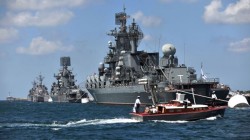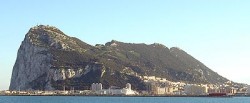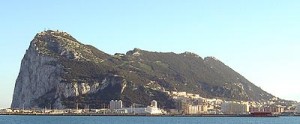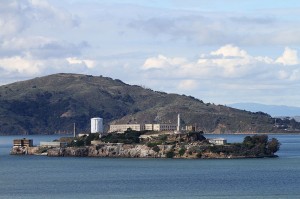Aaron Willschick on the tension over the recent Russian military exercise in the Black Sea and how Russian President Vladimir Putin should put an end to his persistent warmongering.
In what is becoming an almost daily occurrence, the Russian government has again stolen the front page news headlines with its recent military exercise involving more than thirty warships, 250 combat vehicles and up to 7, 000 troops. The exercise has been met with confusion and anxiety from the international community with regards to what in fact Russia’s intention was with ordering the surprise maritime exercise.
The country that has had the strongest reaction against the exercise is Georgia. Tensions have been high between the two countries ever since they went to war in 2008 over the separatist republics of Abkhazia and South Ossetia. In response to the exercise, the Georgian government said Russian military action in the Black Sea was “at odds with the interests of stability.” The official Russian statement on the drills from state-run news agency RIA Novosti was that they were meant to ensure regional stability ahead of next year’s Winter Olympics in Sochi on Russia’s Black Sea coast.
On April 1st, the Russian Foreign Ministry dismissed Georgia’s condemnation, stating that Tbilisi’s assertion was groundless and out of sync with its declared commitment to normalize its relationship with Russia. The Foreign Ministry also stated that Georgia’s claims that the military drills were destabilizing reflects its own regional aggressions. Russian Foreign Ministry spokesman Alexander Lukashevich said the Georgian reaction was “a public inflation of a Russian threat to cover its own confrontational policy.” NATO has not offered an official response to the exercise, but a NATO-member diplomat suggested that there was some unease over the surprise nature of the drill. There was no official objection from Ukraine either, but some members of the parliament chose to voice their displeasure.
Under international law, maritime exercises of this size do not need to be announced to other countries in advance, but as evidenced by some of the reaction, it has only added to the mounting international skepticism over Russia’s global intentions. Despite the rising tension, it is fairly clear that the Black Sea military exercise is yet more warmongering by the Kremlin and Putin and what we have come to expect during his lengthy tenure as either Russian President or Prime Minister. Putin himself even chose to attend the exercise in the Black Sea town of Anapa, along with Defense Minister Sergei Shoigu. During his time in office, Putin has used his role as commander-in-chief to cast himself as a strong leader for whom national security is foremost. Particularly since returning to the presidency last May, Putin has stressed the importance of a strong and agile military. He has often cited external threats in his thirteen years in power when discussing the need for reliable armed forces. It has been reported that spontaneous training missions resembling this one are apparently set to become routine in the Russian military.
Despite Russian denials, it is quite apparent that this exercise is part of some grand strategy of standing up to the West and asserting Russia’s regional dominance. Putin seems intent on projecting Russian power towards Europe as well as the Middle East. In late February, Putin ordered military leaders to make urgent improvements to the armed forces in the next few years, saying Russia must thwart Western attempts to tip the balance of power. He said that manoeuvres must be held with less advance warning to keep soldiers ready and prepared. Observers have commented that the drill is likely part of a wider attempt to reconfirm that the Russian navy and military are still able to play a political and geopolitical role in the south.
It is time for Putin to put an end to his regular attempts at flexing Russia’s geopolitical and military might. It has become all too regular an occurrence that it has now grown to be predictable and reminiscent of Soviet rhetoric during the Cold War. As a leader, Putin seems intent on making himself feared on the international stage which is unrealistic in this day and age. All the strength he is putting into trying to raise Russia’s geopolitical prominence could be spent on re-establishing and reinforcing relationships with Western powers. Unfortunately, it seems unlikely that this will happen until Putin has decided that his time in the Russian political spotlight has come to an end, a remote possibility unlikely to occur any time soon.
Aaron Willschick is a recent graduate from the MA program in European, Russian and Eurasian Studies at the University of Toronto’s Munk School of Global Affairs. He also holds an MA degree in political science from York University and a BaH from York University’s Glendon College. His research interests include the European Union, European security and defense policy, NATO enlargement to Eastern Europe and democratization. He has extensive experience in policy and research, having worked as a trade assistant at the U.S. Consulate in Toronto and a research assistant to well-known Canadian author Anna Porter and York University political science professor Heather MacRae.





